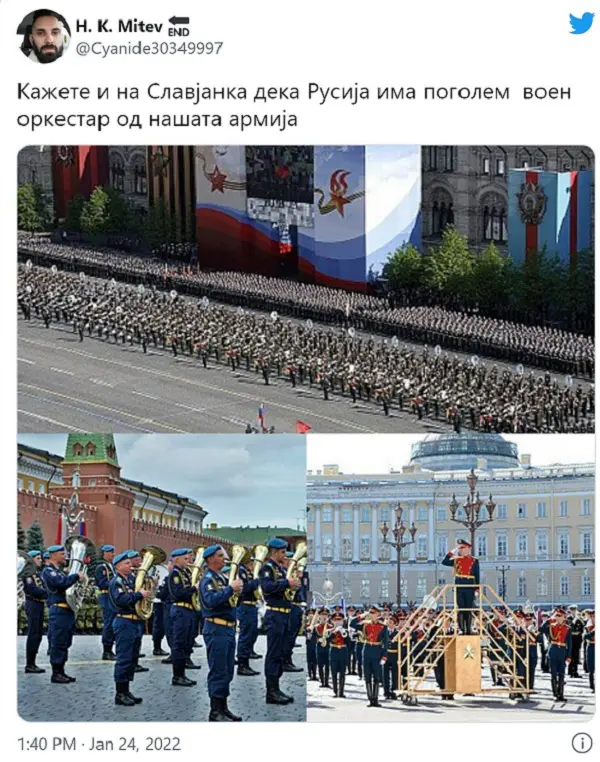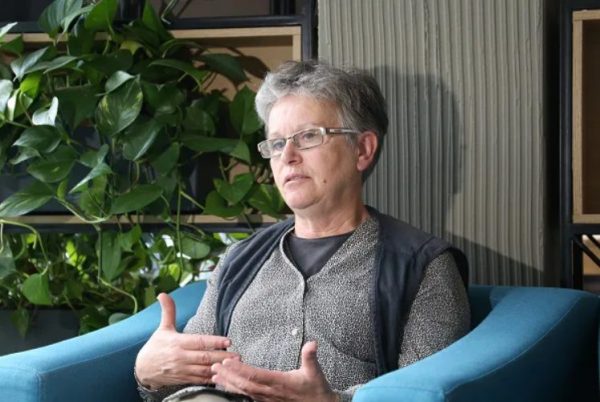MIRJANA NAJCEVSKA
The Republic of North Macedonia is a member of NATO since 2020.
NATO membership was part of the program commitments of most of the political parties and was supported by over 75% of citizens.
Imagined as a structure for collective defense, NATO membership implies fulfilling certain democratic standards, certain functional-military standards and certainly readiness of the members to take part in the formulation of a common position and participate in joint activity in conflict situations.
The Minister of Defense of the Republic of North Macedonia was asked by journalists about the position of Macedonia in regards to the conflict between Russia and Ukraine and the possible involvement of the country’s army in NATO activities related to this conflict.
The Minister stated that the Republic of North Macedonia supports the sovereignty and territorial integrity of Ukraine and supports the efforts of NATO and the OSCE for overcoming the tense situation.
In her statement she added that “Our institutions are fully taking all measures for protection of the Macedonian citizens. We are in coordination with the relevant institutions in charge of the security of the citizens in the country and beyond. Our firm positions to which we stand by is that we unequivocally respect the Washington Agreement and all fundamental agreements that guarantee the security of Europe”.
In regards to the possible engagement of Macedonian soldiers should the conflict escalate, the Minister stated that the engagement of our Army, as well as the armies of all other NATO member states, is defined at conferences for generating forces that specifically for this topic are held under the coordination of the Supreme Commander of the NATO Allied Forces. At these conferences, every member state makes available its forces, units or equipment, according to its possibilities. Currently, our army, as part of those structures, has an obligation and is already preparing analyses about the possibilities for our potential participation, that is, engagement.

This and such statement was followed by an avalanche of disparaging, mocking and insulting comments of quasi-analyses.
The latest form of disavowal of the statement of the Minister of Defense of the Republic of North Macedonia is the placement of the statement of the Croatian President that “Croatia has no business in Ukraine, we will not participate in any conflict”. The combination of the two statements was not made by a coincidence: “Macedonia is preparing for a conflict with Russia, and the Croatian President on the contrary: I will withdraw all soldiers”. Whereas the statements of the Prime Minister of Croatia are quite deliberately not conveyed, according to whom “Croatia will clearly and decisively respond if Russia attacks Ukraine” and “Croatia is a member of the EU and NATO that have in several occasions warned Moscow that it will face serious consequences if it attacks Ukraine” and what the role of Croatian troops would be in NATO? As part of the efforts to prevent the conflict.
The insults are especially gaining momentum on the social networks.
This and such reaction should worry us very much.
First of all, because it is an open underestimation of our own country, of its importance and the place it has in the wider structures in which we are or want to become members.
Second, some other values, much different than the ones we have committed to in our further development, are being openly favored. Namely, the attacks are used for expanding animosity towards civil society associations and the idea of an open society.
Third, a negative perception is being built about Ukraine and its fight to be recognized as an independent and sovereign country, which is in total contradiction to the glorification of precisely the separation of Macedonia from the former SFRY and the referendum solution for its further independent development.
Criticism for the sake of criticism is not only meaningless and established in an obvious inferiority. It can be particularly harmful and counterproductive. It can seduce, defocus and derail.
Translation: N. Cvetkovska
















